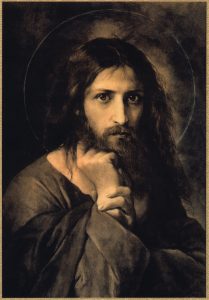In the unfolding drama of Christian history, few ironies are as striking, and as spiritually tragic, as the Protestant invention of sola scriptura—the doctrine that the Bible alone is the supreme authority in matters of faith—while simultaneously rejecting the very Church through whom the Scriptures were received, preserved, canonised, and interpreted for centuries. Indeed, among many Protestants, especially within Evangelical and “non-denominational” circles, there exists a deep-seated ignorance, whether innocent or wilful, regarding the actual origin of the Holy Scriptures and the ecclesial context in which they were discerned and safeguarded.
The slogan sola scriptura, first advanced by Martin Luther in the early 16th century, was a polemical reaction against perceived abuses and excesses within the Roman Church of his day. Yet even in Luther’s formulation, it rested upon a highly selective reading of ecclesial history. The Reformers presumed the Bible to be self-authenticating and inherently sufficient, abstracted from the living Tradition of the Church. However, what is often omitted from popular Protestant discourse is that the Bible—both Old and New Testaments—was not handed down from heaven complete and bound in leather, nor did it emerge spontaneously in the early Christian communities. It was formed, canonised, and transmitted by the Orthodox Church, centuries before the birth of Protestantism.
The Old Testament, in the form received by the Church, is largely drawn from the Septuagint, the Greek translation of the ancient version of the Hebrew Scriptures produced in Alexandria in the centuries before Christ. This version of the Old Testament was used by the Apostles themselves and quoted extensively throughout the New Testament. When a Protestant today opens their Bible and turns to the Book of Isaiah or the Psalms, they are reading a corpus of writings transmitted through the Jewish Hellenistic milieu but received as Scripture by the Church in her earliest years—long before the Council of Jamnia or the narrowing of the Hebrew canon. And yet, many Protestants are unaware that their abridged Old Testament represents a break not only from early Church usage but also from the text used by Christ and His Apostles.
The New Testament likewise did not fall from the sky. It was the product of apostolic preaching and the life of the early Church. Letters, Gospels, and apostolic writings circulated among Christian communities, but it was not until the fourth century that a consensus began to solidify concerning which books were inspired and should be read in the churches. This consensus did not arise from individual study or democratic vote, but from conciliar discernment—through the guidance of the Holy Spirit in the Church. Councils such as those held in Hippo (393) and Carthage (397) affirmed the canonical list that we now call the New Testament, and this affirmation was later confirmed by the Seventh Ecumenical Council (787). To reject the Orthodox Church, then, is to reject the very conciliar authority by which the canon of Scripture was determined.
Most Protestants do not realise that without the Church, there would be no Bible. The Church is not the child of the Bible, but rather, the Bible is the child of the Church. As the Apostle Paul writes, “the Church of the living God, the pillar and ground of the truth” (1 Timothy 3:15). It is the Church that proclaimed the Gospel, that baptised the nations, that discerned the authentic writings from the spurious, and that preserved the Word of God through centuries of persecution, schism, and heresy. To exalt the Bible while ignoring or denouncing the Church is to cut the fruit from its root.
Furthermore, sola scriptura has proven incapable of producing doctrinal unity. The multiplicity of Protestant denominations—now numbering over 30,000 by some estimates—is a witness to this failure. If Scripture alone were sufficient, why then the endless divisions over baptism, the Eucharist, predestination, ecclesiology, the nature of salvation, and more? The Orthodox Church, by contrast, has preserved the same Apostolic Faith, sacraments, and doctrine from the beginning, guided not by private interpretation, but by the consensus of the early Church Fathers, the liturgical life of the Church, and the living Tradition that breathes within her.
The tragedy is that many well-meaning Protestants sincerely love the Bible and seek to live according to its teachings, yet remain unaware that the very framework in which they read and interpret Scripture has been severed from the Tradition that gave rise to it. They sit at a table nourished by the Church’s Scriptures, while scorning the household that set the table. This is not a judgment of hearts, but a sober assessment of history and theology.
In the end, the call is not to abandon the Holy Scriptures—God forbid!—but to return to the fullness of the Faith that both honours and understands it. The Orthodox Church does not place Tradition above the Scriptures, but rather affirms that the two cannot be rightly separated. Scripture exists within the Church, not apart from it. To truly honour the Word of God is to honour the Body through whom that Word was preserved.
To those Protestants who love the Bible and long to understand it more deeply, the invitation remains. Come and see the Church that canonised your Scriptures, that has preserved the apostolic Faith unbroken, and that continues to proclaim Christ, crucified and risen, in the very language and rhythm of the early Church. Return to the root, and you will find the fruit has not perished.
Let us not be found, in the final hour, clinging to a book while rejecting the very Bride of Christ who bore it forth. Instead, let us return to the bosom of the undivided Church, where Scripture, Tradition, and sacramental life are held together in harmony, as they were from the beginning.
May God bless you +
Fr. Charles
2 August 2025

Comments are closed.